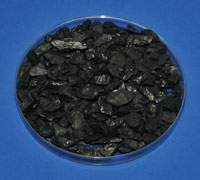Heart is one of the important parts of the body which needs to be in best of its condition for a healthy life of an individual. If a condition of heart changes from the normal condition and the person is uncomfortable then it is understood that a person may be suffering from some type of heart disease. More info visits our website herbalcureindia.com.
Heart disease is a general term for any type of uncomfortable condition and disease of the heart. There are various heart diseases such as coronary heart disease, hypertension, heart failure, congenital, disorders or non-functioning of the heart valves, heart infections, cardiomyopathy, and conduction disorders of heart.
Diet for Heart Disease Patient
Oatmeal is proven to lower cholesterol. Look for steel-cut oats that are full of fiber rather than overly sweetened and processed instant oats. Not only fiber but minerals and vitamins are found in oats. This grain is believed to help reduce the effects of stress, another factor that harms the heart.
Wild-caught Alaskan salmon is one of the most heart-healthy foods around. Full of omega-3 fatty acids, the wild salmon are virtually free of contaminants. Not so, the so called Atlantic salmon that are actually farmed fish feed colorants to brighten their flesh. Add grilled salmon to salads or serve as a main course. Omega-3 fatty acids increase HDL levels while lowering LDL, or bad cholesterol. They also reduce inflammation and lower blood pressure.
Berries are loaded with antioxidants that protect the cardiovascular system from free radical damage, a major factor in heart disease. Along with the antioxidants, berries have anti-inflammatory properties that help prevent artery problems. Add berries to vegetable or fruit salads, cereal, and homemade smoothies.
Almonds and walnuts are a great source of heart protective vitamin E, magnesium, and omega-3 fatty acids along with many other nutrients. Make a great trail mix of dried fruits and nuts, add to salads, or baked goods.
Legumes are just what the heart needs. Red, black, and kidney beans, chickpeas, and lentils are all excellent sources of soluble fiber and nutrients. Add them to soups and stews or salads.
Brown rice provides the B-complex vitamins that help the body deal with stress. It is also a great source of fiber and magnesium. Add some beans and you have a complete source of protein.
Green tea is another excellent source of heart-healthy antioxidants. Brew your own, adding just a touch of raw sugar or honey if you must sweeten it.
Tomatoes provide carotenes, lycopene, vitamin C, and other nutrients. Both cooked and fresh tomatoes are heart-healthy and can be added to salads, sandwiches, pasta, and soups and stews.
Spinach along with all fresh vegetables and fruits gives the body a full range of heart-healthy nutrients. Studies have shown that adding just three servings of vegetables to your diet significantly cuts the risk of heart disease. Eat your veggies raw in salads or add them to almost any recipe for a nutrient boost.
Olive oil has been used for millennia throughout the Mediterranean region. This monounsaturated fat lowers LDL cholesterol, reducing the risk for heart disease. Use this delicious oil liberally on salads, for cooking, or make a delicious dip with herbs and Parmesan cheese.
Meditation
Clinical studies have proven to demonstrate that meditation can lower blood pressure and hypertension in men and women. Using this technique is now mainstream medicine and is often combined with other types of slow rhythmic exercises like tai chi or yoga. Just 20 minutes per day twice a day can be effective at reducing stress and anxiety which are preludes to heart disease. Meditation is highly recommended by most doctors as it also has a positive effect on our mood and sense of well being.

 Red Algae in Marine Aquarium
Q. Ive been keeping saltwater fish for about five years, and
Red Algae in Marine Aquarium
Q. Ive been keeping saltwater fish for about five years, and
 Aquarium maintenance logs for freshwater, saltwater and reefkeeping aquarists
Thank you for signing up for the FishChannel newsletter, the
Aquarium maintenance logs for freshwater, saltwater and reefkeeping aquarists
Thank you for signing up for the FishChannel newsletter, the
 Catch More Salmon - Follow These Simple To Implement Techniques
FLAT Rigs outriggers, shock cord snubber, and rigging kit i
Catch More Salmon - Follow These Simple To Implement Techniques
FLAT Rigs outriggers, shock cord snubber, and rigging kit i
 Fish and Fungus
Black Moor Q. I have two large black moor goldfish, one larg
Fish and Fungus
Black Moor Q. I have two large black moor goldfish, one larg
 Aquarium Carbon
Whether it is for a small betta bowl, 6 million gallons
Aquarium Carbon
Whether it is for a small betta bowl, 6 million gallons